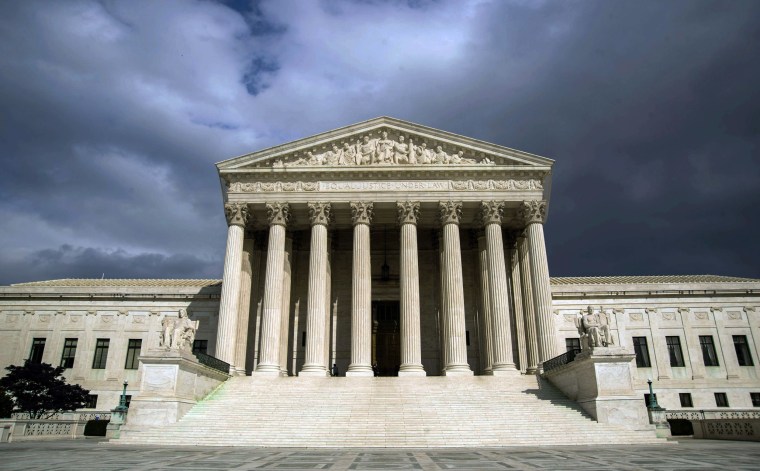The Supreme Court on Monday declined to take up a court battle over an Arizona law that would restrict the availability of medication abortions. The procedures account for nearly half of all first-trimester abortions at Planned Parenthood clinics nationwide.
A federal appeals court had blocked enforcement of the law, passed in 2012, and the Supreme Court's action on Monday denied Arizona's appeal. So the law cannot be enforced in the state.
“Women who have made the decision to end a pregnancy will continue to get safe, legal care based on the expertise of their doctors, not politicians who presume to know better,” said Nancy Northup, of the Center for Reproductive Rights.
In a medication procedure, a woman opting for a non-surgical abortion is given two different oral drugs two days apart, with a follow-up visit to a clinic a few weeks later. The first drug, mifepristone, also known as RU-486, causes the fertilized egg to detach from the uterine wall. The second, misoprostol, causes the uterus to contract and expel its contents.
FDA labeling rules require that both medications be given at a clinic. But virtually all doctors follow a different procedure, using a much lower dose of the first drug and allowing the second to be taken at home — which lowers the cost by about $200.
The modified procedure also allows medication abortions to be performed two weeks further into a pregnancy — up to nine weeks instead of seven.
Such an off-label use of the drugs is permitted under federal law, and doctors say it is common in many medical specialties. Women's groups estimate that two million women have received a medication abortion under the alternative procedure.
But in 2012, Arizona passed a law, signed by Gov. Jan Brewer, requiring doctors in the state to follow the FDA labeling requirements — with the higher dosage, the extra clinic visit, and the shorter time frame.
The legislature found that "abortion-inducing drugs are associated with increased risk of complications relative to surgical abortions," and that the risk is greater "with increasing gestational age."
Claiming that the law would have the effect of stopping medication abortions in Arizona, Planned Parenthood sued the state. In June, the Ninth Circuit Court of Appeals declared the law unconstitutional and blocked the state from enforcing it while Arizona officials pursue an appeal.
The appeals court found that the law "substantially burdens women's access to abortion services," but that Arizona "introduced no evidence that the law advances in any way its interest in women's health."
Since 1992, the Supreme Court has held that state regulations cannot impose an "undue burden" on a woman's right to seek an abortion, but the lower courts have disagreed on how to apply the test to recent state restrictions.
Similar laws are in effect in Ohio, North Dakota, and Texas. The court's action Monday does not affect those laws.
